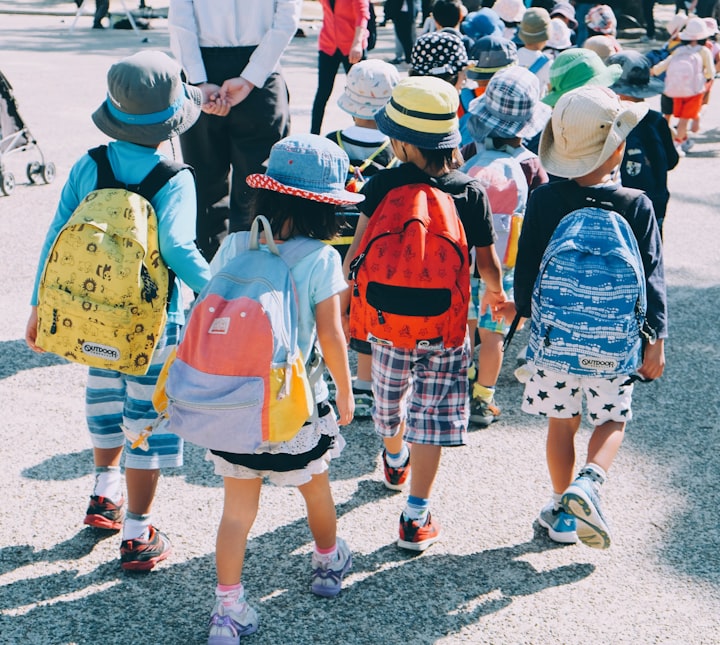The Connection Between Language Acquisition and Cognitive Development in Children
The Connection Between Language Acquisition and Cognitive Development in Children

Parents try to give their children every possible advantage. However, when it comes to influencing the way that the process the world, it’s never clear exactly what needs to be done. Can cognitive functions be groomed and nurtured, or are they simply qualities that a person is born with?
While smarts are largely genetic, there are still many things parents can do to influence how their children learn and process the world. And of course, the earlier the parent starts, the more the child will benefit. In this article, we explore the link between language acquisition and cognitive development in children.
What is Language Acquisition?
As the phrase suggests, language acquisition is simply the process by which children develop the ability to translate their thoughts and experiences into words. They do this by getting exposed to lots and lots of language.
A 1996 study by Jerome Bruner found that as children formulate language into thoughts, their cognitive powers grow and develop. Essentially, the more time they spend organizing and honing their thoughts, the better their brains will develop.
There is no perfect formula for it. No, “10,000 words a day keeps the low ACT scores at bay,” (although the actual average language acquisition rate is about 21,000 words a day).
Adults can also benefit from language acquisition, though not nearly as extensively as children. The language acquisition process is commonly framed as “passive exposure.” The child learns but does not realize that they are learning. Kids consistently outrank adults in their ability to learn this way, while adults tend to be better than kids at deliberately learning specific facts.
Now that have established the importance of language acquisition skills in children, let’s take a look at some ways you can help your kids take in as many words as possible.
Read to Your Child
You’ll hear this suggestion a lot when you’re a new parent. The second your family announces that your family is expecting, the book gifts will start pouring in. By the time the kid hits the scene, you’ll have a hodge-podge library on your hands. Classics. Some dull books that perhaps are better left behind in the obscurity of time passed (how many times can Beatrix Potter use the word “Presently,” you find yourself wondering) and the inevitable collection of Biblical stories for children.
People push books on kids, even those too young to understand them because it exposes them to new words. Hundreds of them at a time. Not only does reading to your children expand their vocabulary and comprehension skills but it may help with many other aspects of Kindergarten prep as well. It’s a great way to prepare for their future education.
Early reader books emphasize:
• Basic skills: Colors, shapes, and counting to ten feature heavily in the storylines of many early reader books. Prepare to be tantalized.
• Attention span building: Sit down with your kid and reach for twenty minutes, and you aren’t just teaching them new words and concepts. You are also introducing them to the much more novel idea of sitting still and listening for an extended period of time. Their future teacher will thank you for it.
• Social awareness: Picture books also often feature stories that help to contextualize broader social issues in terms that a child will be able to understand. This is great for parents who want to raise socially aware kids but don’t know how to start.
There is a popular movement circulating around libraries all over the country that recommends 1000 books before kindergarten. While this sounds like a lot, it actually equates to less than one book a day from the time your child is born to the day they first step into school. Give it a try.
Simply Make a Point of Having a Lively Household
It’s important to note that, while the “language acquisition results in improved cognitive development in children,” theory is very interesting, it’s also pretty recent. Parents have been giving their children hearty doses of language for thousands of years before any studies were published.
Children, consequently, still got their words. How? By living normal young lives. Making an effort to give your children language is awesome, but if you don’t have time for all of the suggestions that we’ve described so far—
I didn’t want to say anything, but no. I really don’t.
That’s ok. You can still give your child the gift of language simply by making sure they are exposed to plenty of good conversation. Ask them questions. Tell them about your day. Have them tell you about theirs. Try to eat as many family meals as you can.
It may not sound like much, but keep in mind that these were the essential components of language exposure for centuries. Just because your neighbor is taking their kid to story time at the library every day, and enrolled in the “One Thousand Books Before Kindergarten,” program (which incidentally is a much easier milestone to hit than it may initially sound like) doesn’t mean you need to be.
Every family is a little bit different but every kid will benefit from spending quality time with the people who care about them.






Comments
There are no comments for this story
Be the first to respond and start the conversation.